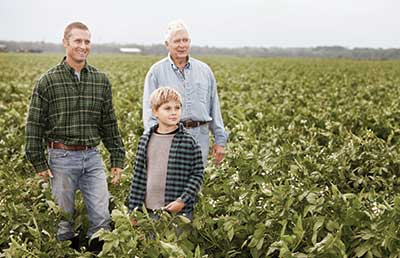Are Your USDA Payment Limits Going to Change?

Thanks to Joe Duda, Agribusiness Principal in our Rochester, MN office, for providing content for this post.
This week Senators Sherrod Brown (D-OH) and Chuck Grassley (R-IA) announced that they introduced legislation to correct what they see as abuse of the farm payment program system. The proposed legislation could significantly change who receives subsidy payments and how much they receive.
Historically, the default structure for large farm operations has included a general partnership, which was used to create a maximum of six payment limits of $125,000 ($750,000 total, one for each partner). Current law also states that the recipient must be activity engaged in farming, meaning 1000 hours of labor or an unquantified amount of time spent on the management of the entity. The labor requirement can be used as a loophole in the system.
The Farm Program Integrity Act creates a hard cap of $250,000 per year in total commodity support for any one farm operation. In addition, it requires that payment recipients spend at least 1000 hours involved in farm labor or management AND 50% of the total time required to conduct the farming operation.. The bill allows family and extended family members to qualify as actively engaged without each member being required to meet their own individual service hour requirement. Crop share landlords continue to be considered active, while cash rent landlords remain ineligible.
Sherrod and Grassley’s office communications on the bill indicate that currently just 10% of farms receive 70% of the farm payment subsidies and that their intentions are to bring back USDA enforcement and ensure the targeting of farm commodity payments to family farms. While well intentioned, the practicality of the situation may be difficult. The labor requirement is oddly worded with the 1000 hours and 50% requirement. In addition, will it merely drive large farms to create two person partnership instead of six person entities, adding to complexity and administrative hassle.
Stay tuned as the debate around the 2023 Farm Bill progresses.
Kelly Jackson Hardy is a certified public accountant and business advisor specializing in income taxation, accounting services, and succession planning for farmers, privately-held elevators and supply dealers, and cooperatives. Kelly is a principal with CliftonLarsonAllen in Princeton, Illinois, as well as a regular speaker at tax and estate planning seminars. Kelly was raised on a hog, row crop and cattle farm in central Illinois and has been involved in the ag industry her entire life. Kelly, her husband, and two sons are active in 4-H and operate a small feeder calf operation and pumpkin business.

Comments are closed.